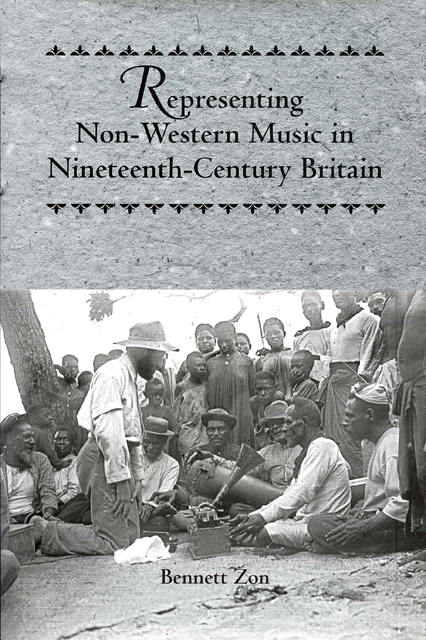Book contents
- Frontmatter
- Dedication
- Contents
- List of Illustrations
- Preface
- Acknowledgments
- Introduction Humanizing the Musical Savage: Orientalism and Racism in the History of British Ethnomusicology
- Part One Early Anthropological Influences
- Part Two Musicology in Transition to Evolution
- Part Three Individualism and the Influence of Evolution: Charles Samuel Myers and the Role of Psychology
- Part Four Retaining Cultural Identity: A. H. Fox Strangways and the Problems of Transcription
- Epilogue The “Ethnomusicology” in Long Nineteenth-Century Representations of Non-Western Music
- Works Cited
- Index
- Eastman Studies in Music
Chapter Seven - Histories of National Music (1): Henry Chorley and the Anthropological Background
Published online by Cambridge University Press: 10 March 2023
- Frontmatter
- Dedication
- Contents
- List of Illustrations
- Preface
- Acknowledgments
- Introduction Humanizing the Musical Savage: Orientalism and Racism in the History of British Ethnomusicology
- Part One Early Anthropological Influences
- Part Two Musicology in Transition to Evolution
- Part Three Individualism and the Influence of Evolution: Charles Samuel Myers and the Role of Psychology
- Part Four Retaining Cultural Identity: A. H. Fox Strangways and the Problems of Transcription
- Epilogue The “Ethnomusicology” in Long Nineteenth-Century Representations of Non-Western Music
- Works Cited
- Index
- Eastman Studies in Music
Summary
Many of the issues that characterize general music histories are also found in general histories of national music: the “ancient or modern” confusion; the aesthetically deprecating tone; the inability to conceptualize systemic relationships with Western music; and most important, perhaps, the use of racist language as a vehicle for establishing ontological superiority. In this genre, as in general music histories, non-Western music continues to be used as a metaphor for aesthetic and moral inferiority, with Western music lurking in the Western imperial background as the gold standard for all national music. Two figures immediately come to mind in this genre, Henry Chorley (1808–72), dealt with here, and Carl Engel (1818–82), dealt with in the next chapter.
Chorley and the Anthropological Background
Apart from Dauney’s rather advanced proposals, and other earlier papers already discussed, it was not until the late 1860s, in fact, that music was elevated to a topic of discussion within academic anthropological literature. It was with Chorley’s very brief article “Music in Race” (1869) in the Anthropological Review, as well as his slightly later and expanded companion piece (untitled) in the Journal of the Anthropological Society of London (1870–71), that this occurred. Surprisingly, perhaps, Chorley’s earlier article does not discuss race in relation to non-Western peoples, but in relation to Wagner’s anti-Semitic tract, “Das Judenthum in der Musik” (1850, rev. 1869), and some works written about it, the later article being more generally expansive in its coverage. Chorley begins “Music in Race” by highlighting the theoretical centrality of race within British anthropology, and suggesting that the fierce debate that Wagner’s book has engendered in Germany demands attention overseas. Needless to say, the attention Chorleygives Wagner’s tract is entirely negative, not simply because of its overt racism, but because Wagner simply refuses to substantiate his views:
There may be some important truth underlying a theory which, unless confined to proper limits, appears to be in contradiction to daily observed facts; this is but of too frequent occurrence with writers who do not proceed systematically with their subjects, and certainly the absence of all scientific method and scientific spirit in the essay of Wagner and in the replies it has called forth is sincerely to be regretted.
- Type
- Chapter
- Information
- Representing Non-Western Music in Nineteenth-Century Britain , pp. 114 - 128Publisher: Boydell & BrewerFirst published in: 2023



